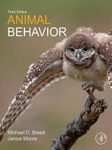About this book
Horticultural Plant Breeding is a complete and comprehensive resource for the development of new cultivars or clones of horticultural crops. It covers the basic theories that underpin plant breeding and applies Mendelian, quantitative and population inheritance practices in smaller populations where the individual plant has high value. Specific traditional breeding methods are also covered, with an emphasis on how these methods are adapted for horticultural species. In addition, the integration of biotechnologies with traditional breeding methodologies is explored, with an emphasis on specific applications for fruits, vegetables and ornamental crop species. Presented in focused sections, Horticultural Plant Breeding addresses historical perspectives and context, and genetics as a critical foundation of plant breeding. It highlights treatments of the various components of breeding programs, such as breeding objectives, germplasm, population engineering, mating systems, enhanced selection methods, established breeding methods applicable to inbreeding and outcrossing situations, and post-breeding activities.
Contents
Section 1. Elements and Underpinnings of Plant Breeding
Introduction to Section 1
1. Introduction
2. The Context of Plant Breeding
3. Review of Genetics (From the Perspective of a Plant Breeder)
4. Engineered Population Structures
5. Mass Selection and the Basic Plant Breeding Algorithm
6. Breeding Objectives
7. Germplasm and Genetic Variability
8. Enhancement of Germplasm
9. Improvement of Selection Effectiveness
10. Natural Mating Systems and Controlled Mating
11. Cultivar Testing and Seed Production
12. Protection of Proprietary Plant Germplasm
Section 2. Breeding Methods
Introduction to Section 2
13. The Pedigree Method
14. Other Breeding Methods for Self Pollinated Plant Species
15. Breeding Methods for Outcrossing Plant Species: I. History of Corn Breeding and Open Pollinated Populations
16. Breeding Methods for Outcrossing Plant Species: II. Hybrid Cultivars
17. Breeding Methods for Outcrossing Plant Species: III. Asexual Propagation
18. The Backcross Method
19. Breeding for Disease and Insect Resistance
Customer Reviews
Biography
Dr Thomas J. Orton attended Michigan State University, where he earned a PhD in Botany and Genetics. He was then an Assistant Professor and Geneticist at the University of California, Davis where he conducted research on the breeding and genetics of cool-season vegetables. Subsequently, Dr Orton was a Group Leader at Agrigenetics Corp. (Boulder, CO) where his focus was on the applications of biotechnology in plant breeding. Later, he was appointed as Senior Director at DNA Plant Technology Corp. (Cinnaminson, NJ) charged with all aspects of product development of fresh pre-cut/packaged vegetables, including plant breeding and applications of biotechnology. He developed new celery and carrot varieties and was awarded a patent for food processing applications of vegetable varieties. He then joined the faculty of the School of Environmental and Biological Sciences at Rutgers University, where he served as Department Chair and Assistant Director of Rutgers Cooperative Extension before assuming his current position, Professor of Plant Biology in 2004. He is located at the Rutgers Agricultural Research and Extension Center in Bridgeton, NJ. His research and extension program focuses on fresh market and processing tomato genetics and breeding, speciality Capsicum peppers, seedless grapes, season extension in asparagus, and new product development in perishable commodities. Dr Orton has taught undergraduate “Plant Breeding” at both UCDavis and at Rutgers, where he has co-taught for the past 15 years. He has been active in the development and dissemination of scholarship, publishing 48 refereed papers, 14 invited book chapters, 2 co-edited books (on applications of biotechnology in plant breeding), and a large complement of abstracts, non-refereed articles, and conference proceedings. He has been invited to present his research results at 50 scientific meetings and institutional seminars and garnered $1.8 million to support his programs.


































